#knit tutorial
Explore tagged Tumblr posts
Text
youtube
The long awaited double knitted twisted rib bind off method is finally here! Big shout out to the genius in my fibre community who developed this method for me and graciously allowed it to be shared. Happy knitting!
#craft#crafts#wip#maker#knit#knitting#knitting tutorial#tutorial#bind off method#knit bind off#double knitting bind off#twisted rib speciality bind off#Luck bind off method#bind off twisted rib#double knit#double knitting#double knitting tutorial#hand knit#knitting methods#knitting yarn#knitspiration#hand knitted#knitblr#knitters of tumblr#knit tutorial#Youtube
86 notes
·
View notes
Text

Taking stock of the knit stitch library on the blog.
Here is a selection of beginner-friendly two-row-repeat knit stitches:

These are mainly utilising simple knit and purl techniques to create interesting textures and lace effects.

Stitch pattern / knitting tutorials for these and other knit stitches are available via my blog.

#knitting#knitwear#knit#knitblr#knitting tutorial#knitstitch#knitstagram#hand knitted#laceknitting#lace knit#freeknittingpattern#free knitting pattern#free pattern#knitting pattern#knit tutorial
16 notes
·
View notes
Text
🧶 Cow hitch increase
Unlike all other single-stitch increases I know, this one is perfectly symmetrical. I’ve been seeing it a lot in my feed lately, so I thought I’d share it. Haven’t tried it yet in a project though.
It mimics the structure of a cow hitch knot - hence the name.
🎥 🧶 👀✨
999 notes
·
View notes
Text

Everyone has been discussing these lately! I know everyone's been sharing them on a rant post I made that weirdly got more notes than I expected, but I wanted to make one post to compile all the MLP Vintage Butterick Patterns we have to document them!
Please check it out Here on my website where I have uploaded all of the images, provided additional information, and credited every single person who has helped me by scanning or sharing their information!
You can make: Christmas ornaments, plushies, or cute sweaters and cardigans.
All of these patterns are Officially Licensed g1 patterns! Enjoy and feel free to share with me if you make any of these fun crafts!
517 notes
·
View notes
Text
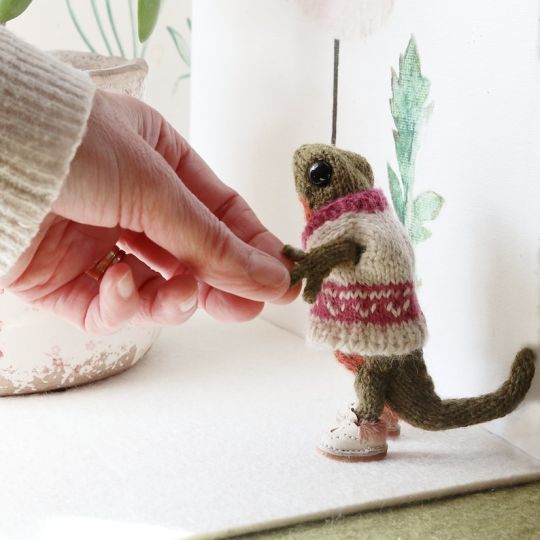
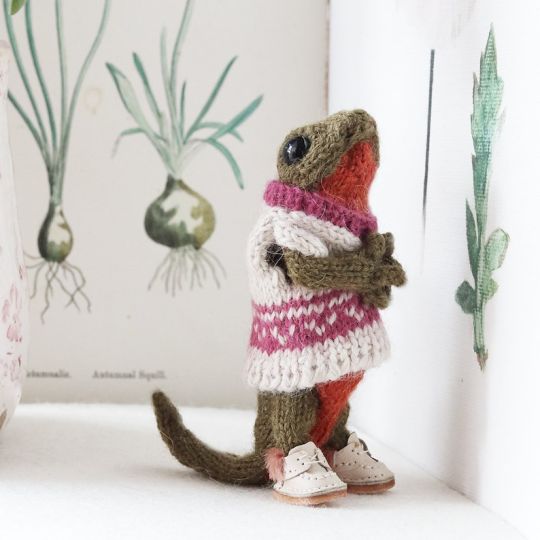
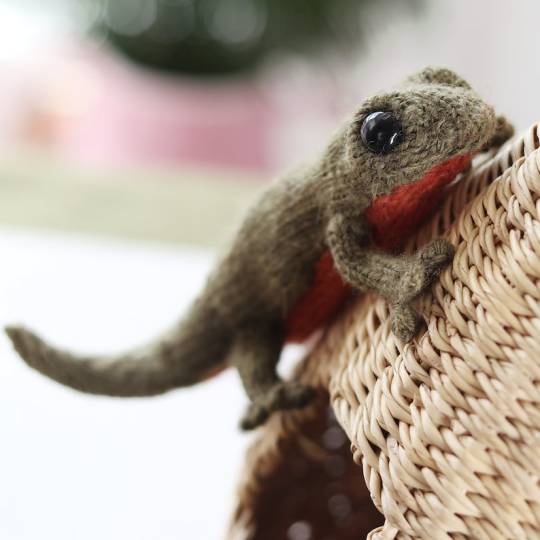
Newt Knitting Pattern by DotpebblesKnits
#DotpebblesKnits#newt#knitting pattern#knitting patterns#knitting pdf#knitting download#knitting tutorial#pdf download#pdf pattern#pattern pdf#craft#diy
590 notes
·
View notes
Text

Lizard hair clip crochet pattern pdf
#crochet#crocheting#pattern#yarn crafts#amigurumi#craft#fiber crafts#knitting#yarnblr#handmade#tutorial
74 notes
·
View notes
Text
Quick tutorial for howl's jacket (i am trying at least)
I am doing my best to explain my technique under the cut:
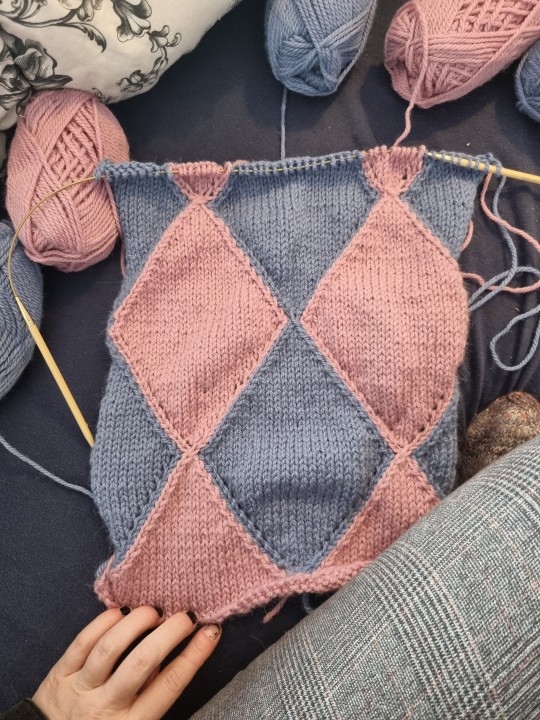
Alright so
I am basically combining intarsia knitting with increases/decreases on the edges
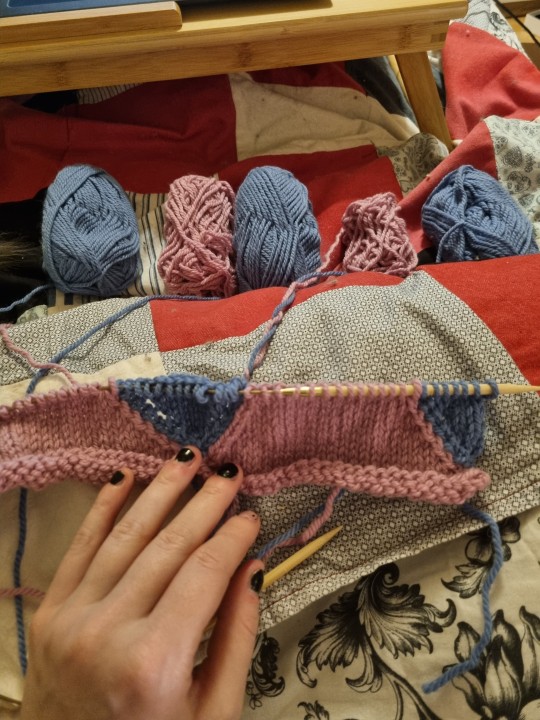
I start out like this, with the five yarns in order in front of me
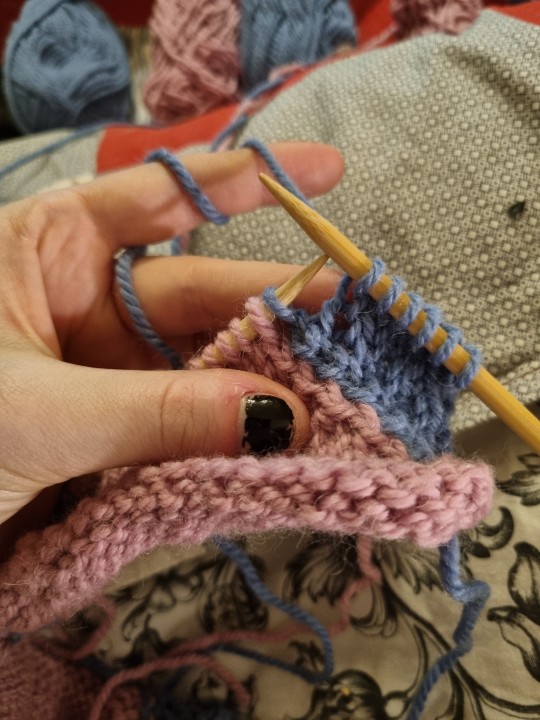
Knit until the last stitch in the first color

Make one stitch (i knit one stitch out of the space between the second-to-last and last stitch)
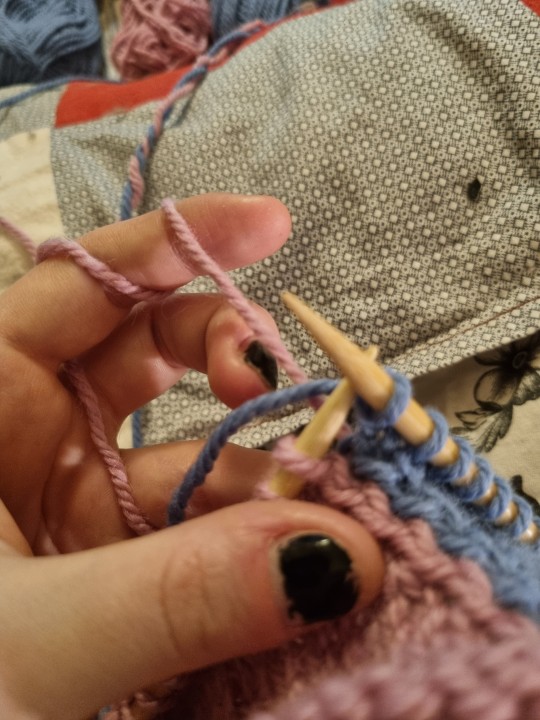
Knit the last stitch and change color (make sure to twist the yarns so the fabric is connected)

Pick up the first stitch, knit the second and slip the first over it (this creates a leftleaning decrease)
At the other end knit 2 stitches together (creates a rightleaning decrease) and switch colors again
Here knit the first stitch and make one (so you increase on both sides
On the return round purl normally and twist yarns (as in normal intarsia knitting)
I hope this is kind of clear? I might do a complete explanation of the pattern when I finish the project (and thus know where its weaknesses are haha)
561 notes
·
View notes
Text
will never understand the appeal of sewing tags into your own handmade garments. isn't the half the appeal of sewing your own clothes the fact that it comes without tags by default
#watching a sewalong tutorial and recoiling in disgust at that scratchy useless little rectangle#anyway i'm gonna try sewing a maxi knit dress soon#the instructions recommend a walking foot and i have one but i'm so lazy that i'm debating whether or not i really need to install it
75 notes
·
View notes
Text
The Why of Sewing 2: Fabric Anatomy (knits)
This post is in a series I am starting that is going to talk about concepts in sewing and fiber arts and try and explain some of the whys behind the hows.
The first thing anyone should learn about sewing is the basic building block of what fabric IS. There are two basic categories for fabric: Woven and Knit. Today I am writing about knit fabric.
Knit fabric is made up of rows of interconnected thread loops. Some knitting machines work back and forth to make a flat fabric, but it is more common for knit fabric to be made in a big tube which is then cut open and the edges sealed. This is the selvedge edge for your knit fabric, but beware! Sometimes when the edge is cut they do not follow the grain correctly.
There is a lot of variety in how the loops can look, but the most basic pattern in knitting is stockinette stitch where the right side of the fabric looks like little v shapes stacked on each other, and the reverse looks like little bumps. This is true in both hand knitting, and the manufacture of knitted cloth. Most fabric used in tshirts and sweatshirts are stockinette. Tshirt fabric is known as jersey.
Below you can see the Right and Wrong Side of a hand knit sweater


Here is a 8x photo of a cotton lycra blend tshirt jersey - it has the same vertical rows of Vs as the handknit sweater.

All knits are at least a little bit stretchy. The loops of fabric just have a lot more movement than the 90 degree angles of woven fabric. Some knit fabric is VERY stretchy, and some is just a little. Fiber content makes a big difference, but I think tackling that is a whole other post.
Knit fabric can be tricky to cut and sew because of that stretch.
The grain of knit fabric is also important to be able to determine. In addition to grain is the DOGS (Direction of Greatest Stretch) this is usually on the cross grain, or perpendicular from the columns of V shaped stitches you see close up. Generally knit fabric is used with the DOGS going around the body. It is especially important for things like neckbands to be cut on the DOGS, as they function like bias on a woven fabric.
below from Left to right I am stretching cotton lycra jersey on grain, on the cross grain (I don't have big enough hands to stretch it to its full ability), and on the bias.



When you cut knit fabric a rotary cutter, mat and pattern weights will help keep the fabric stable and cuts precise, unlike shears and pins. Pins can also cause runs in knit fabrics (like pantyhose). The cut edges of most knits do not fray, which is a big advantage to this type of fabric. This is not true of big chunky sweater knits and handknits. However knits do roll on the edges and the more you handle them, the more they will roll. It will usually roll on both selvedge and the cut edge, but in opposite directions. Generally the best way to handle this is to not be rough with your fabric and when cutting weight down your edges or even tape them down to the cutting mat with masking tape.

Knits also need special sewing machine needles. There are two main types of needles used on knits a ball point needle and a stretch needle. In general a stretch needle is used on fabrics like spandex which are VERY stretchy and difficult to pierce. Most knits do okay with either type, but if you are ever trying to sew a knit and getting lots of skipped stitches or loops on the back try a different needle. Sometimes a microtex needle is used on very fine knits as well.
What is happening to the fabric to make those skipped stitches and thread nests so ubiquitous to beginners trying to work with knit fabrics? The fabric is not being correctly pierced by the needle. Instead of the needle passing through the fabric stretches and travels down into the machine, even a tiny bit of this can disrupt stitch formation.
This image of thread nesting is on a woven fabric, but it will look the same on a knit as well. Citation Link

if you are pretty sure you have the correct needle but you are still getting lots of thread nests, especially at the beginning of the seam, put a bit of tissue paper under the fabric.
Sewing with knits also means considering the stitch you use. A straight stitch seam will break when the fabric stretches because the thread does not stretch. On a regular machine you need to use a narrow zigzag, lightning stitch or a three step zigzag for constructing the seams. For hemming you can use the stitches above, or use a twin needle or the triple stitch on your machine. These stitches vary in how stretchy they are so I recommend trying some out. I almost always choose a narrow zigzag for construction and a three step zigzag for my topstitching.
The other barrier many sewists find when sewing with knit fabric is that on an everyday machine the fabric tends to stretch under the foot. There are a few ways to avoid that. 1. Careful handling - this is never going to be the only solution but rough handling you knits will distort them no matter what else you do. 2. Reduce your foot pressure. Not all sewing machines have this ability, check your manual. 3. Use a walking foot - this foot essentially is like having feed dogs on top and on the bottom of the fabric so it moves smoothly through the machine. It is a very useful thing to have. Beware of off brand walking feet, they might be fine, but a bad walking foot can damage your machine. 4. Use a water soluble double sided tape to stabilize the seam before sewing. This is my least favorite solution, but a tool in the arsenal none the less.
There is a lot to talk about when we talk about knits, but I also don't want this to be a million miles long. Your key takeways from today are the following: How to find the grain and DOGS on knit fabrics, choosing the right needle and stitch for your fabric, and how to handle the fabric under the machine to prevent stretching.
#quilting#sewing#sewing tutorial#fabric#textile art#sewing tips#sewing techniques#the why of sewing#fabric grain#sewing knits#knit fabric
87 notes
·
View notes
Text
youtube
Threads that tell a story—basket design in bloom! 🌿🧺
#flower embroidery#threadskalakari#handmade#embroidery tutorial#embroidery#hand embroidery#embroidery stitches#embroidery pattern#diy#art#crafts#knitting#etsy#youtube
63 notes
·
View notes
Text
This world is an awful, scary place, but I'm knitting a sweater and maybe everything will be ok. If not, at least I have a new sweater.
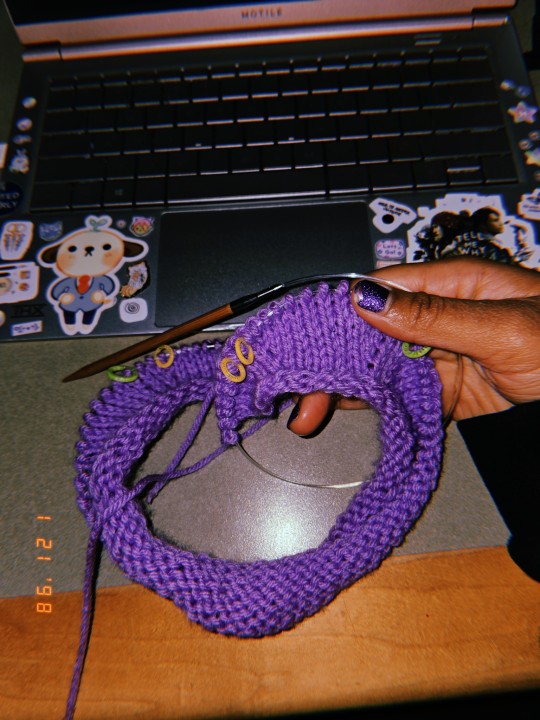
#guards! muzzle her!!!#i used the huji app to get this filter effect!#knitting#I'm following the 'step-by-step cardigan' tutorial by handmade by florence. I'm enjoying it!!!
84 notes
·
View notes
Text
Day 5: Curufinwë
for @feanorianweek, also available on Ao3
Carnistir was getting annoyed with Curufinwë's staring. Just because they were the two youngest, it didn't mean he wanted to play with a toddler who was only talking in in monosyllabic words. Carnistir preferred to play alone, and he was busy with his project besides.
Knit, purl, knit, purl, he counted the row of the scarf he was working on, the child sized knitting needles click-clacking with each new stitch added. Concentrating on the knitting would be even easier if he wasn't under the intense scrutiny of his baby brother.
At least Curufinwë was being quiet. If Carnistir had to be forced to endure a racket on top of the staring, he would have lost his temper a good while ago.
"Wrong!"
Carnistir flinched, instantly losing count as soon as Curufinwë piped up.
"Wrong? What's wrong?" Carnistir snapped, a little too harshly.
The toddler simply ignored his tone however and insistently pointed at the unfinished scarf.
"Wrong," he merely repeated.
Carnistir's face was beginning to turn a furious red as his annoyance grew.
"Yes, you already said that! What's wrong?!"
Perhaps it was a bit unfair of him to speak so stiffly with him, Curufinwë was still a baby after all who hadn't even mastered full sentences yet. But Carnistir was also just a child, and he did not possess the insight to not argue with literal babies.
Curufinwë's little face scrunched up in a frown, a strange copy of Fëanáro's disapproving look. He kept pointing at the scarf, and after a few false starts, he finally said, "Number! Wrong!"
Well... That was certainly the longest word he had ever said. And it was almost a sentence too.
Carnistir looked down at his knitting, carefully counting the rows, and then he found it. Curufinwë was right, there was a mistake indeed. The row he was on had less stitches than there should be.
"I've dropped a stitch..." Carnistir huffed. Then carefully, giving all his attention to the mistake, he got the loose bit of yarn back on the needle and with intense precision fixed it.
"Thanks, Curvo," he muttered begrudgingly.
Curufinwë nodded as his sign of accepting the thanks, then went back to staring at the scarf. Carnistir wandered if staring was the accurate word to use, since it seemed he was keeping perfect count of all the stitches.
Perhaps his little brother's presence wasn't so annoying.
#I don't know anything about knitting#this is the result of me doing a deepdive in knitting articles and youtube tutorials#so don't judge too harshly if it's all wrong#feanorianweek#feanorianweek 2025#curufin#caranthir#silmarillion#the silmarillion#silm fic#fanfiction#fanfic#ao3#ao3 fanfic#ao3 link#my writing
47 notes
·
View notes
Text
Once again, the genius of the TECHKnitting blog continues to amaze me!
This double-knitting cast on is genius - it keeps your double-knit project (the technique, not the yarn-weight! 😂 from flaring at the cast on edge!
Plus, it answers why double-knit fabric doesn't flop open! (Answer: that pesky curl of stocking stitch fabric is actually working in our knitterly favour - I learned a thing today!)
18 notes
·
View notes
Text
I like to weave in as many ends as possible as I go.
This is how I do it when I join a new colour.
‼️ For a better result: Fray or break the yarn to taper the end.
Works both for knitting* and crochet.
*Does not work so well if you are knitting in the round or in intarsia or colourwork, as it will distort that first stitch. Saves you loads of time though, if you are knitting a striped scarf or shawl.
🧶🎥
331 notes
·
View notes
Text
just saw a pinterest comment that suggested learning how to crochet instead of learning how to knit because it's easier and i can't keep silent anymore i have to confess that i wrote my cass learns how to knit fic because i need people to love knitting in the same way that i need people to love cass. the crochet vs knitting metaphor argument exists because i've had that conversation (minus the metaphor and also it was jokingly silly with my friends) with me arguing the side of knitting and as much as i love projecting onto characters stephanie brown would never in her life be against crochet. she would adore crochet. i don't actually dislike crochet its good for things that knitting will never be able to do like baskets and is so much better for stuffed animals and i think it's better for things like bralettes and bags but knitting is so good for clothing it's stretchy and more flowy. crochet is so good for items that need to hold a little more structure but in my opinion knitting makes more comfortable clothing and crochet got so popular in the last couple of years but knitting did not and knitting is not more difficult!! knitting is fun and good and i love her!!!
#crochet got so popular in my generation in the past few years and left knitting in the dust. knitting is my most underrated fav#you would loooveeee knitting if you learned i promise it's not difficult i promise i promise#i mean maybe it is a little bit difficult because that's how hobbies work but you would loveeeeeeee knitting if you learned i promise#ive seen a couple of comments on tutorials and things that are like i know how to crochet but actually i think knitting looks better#and tutorial for crochet stitch that looks like knitting!!#and i'm over here foaming at the mouth#i know my dc friends will understand because its the same feeling as watching your underrated fav continue to be underrated#and objectively there's nothing wrong with this more popular character and you might even really like that more popular character#but if someone mentions they love that character because of traits that your underrated fav has then your eye will start twitching#like cass wants to kill herself so bad there should be buckets of venty angst h/c fic written by teenagers about her you know what i mean
31 notes
·
View notes
Text
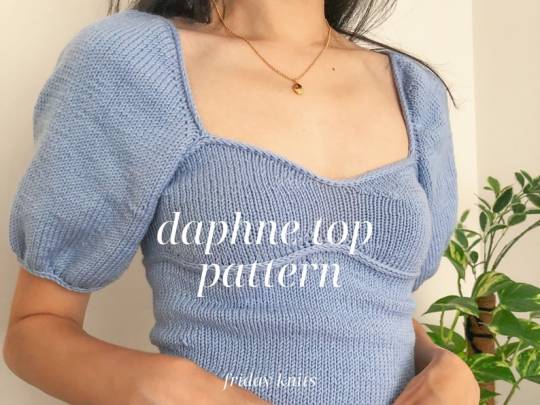

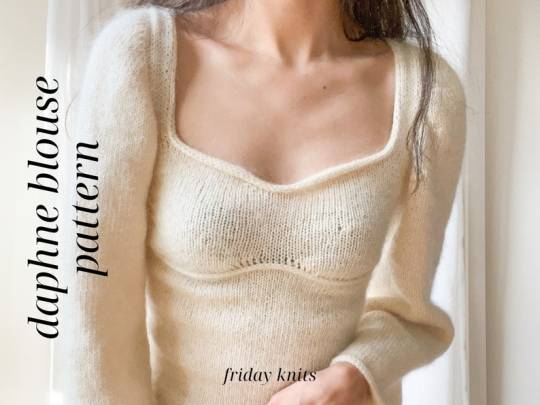
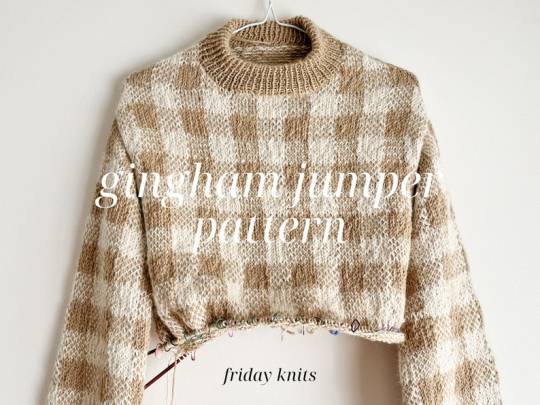
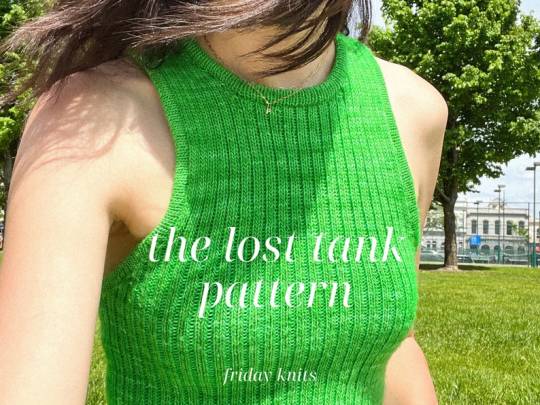
Knitted Tops and Clothing PDF Patterns by FridayKnitsDesigns
#FridayKnitsDesigns#knitting#knitting pattern#knitting pattern pdf#pdf pattern#pdf download#knitting pattern download#knitting tutorial
187 notes
·
View notes